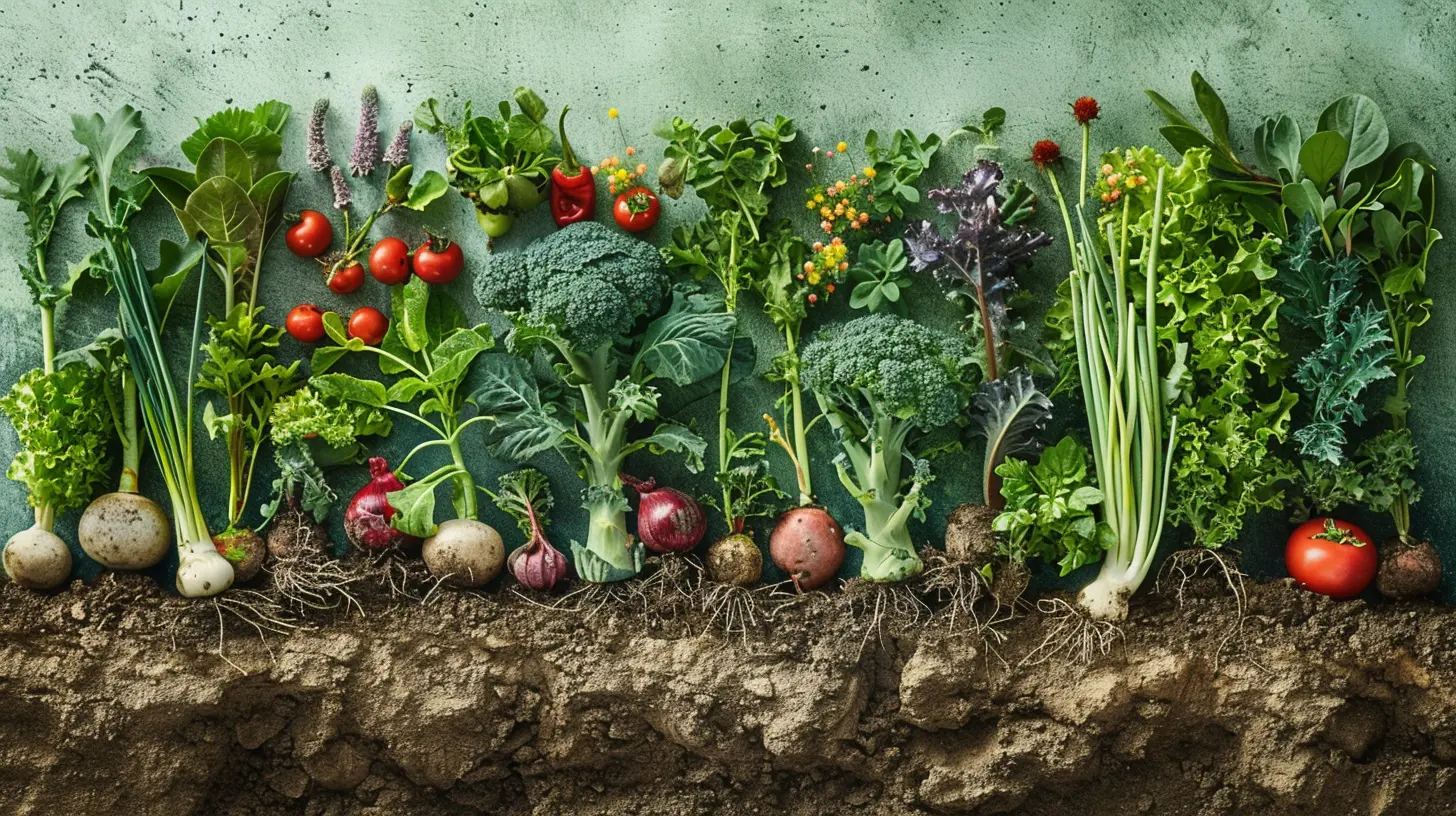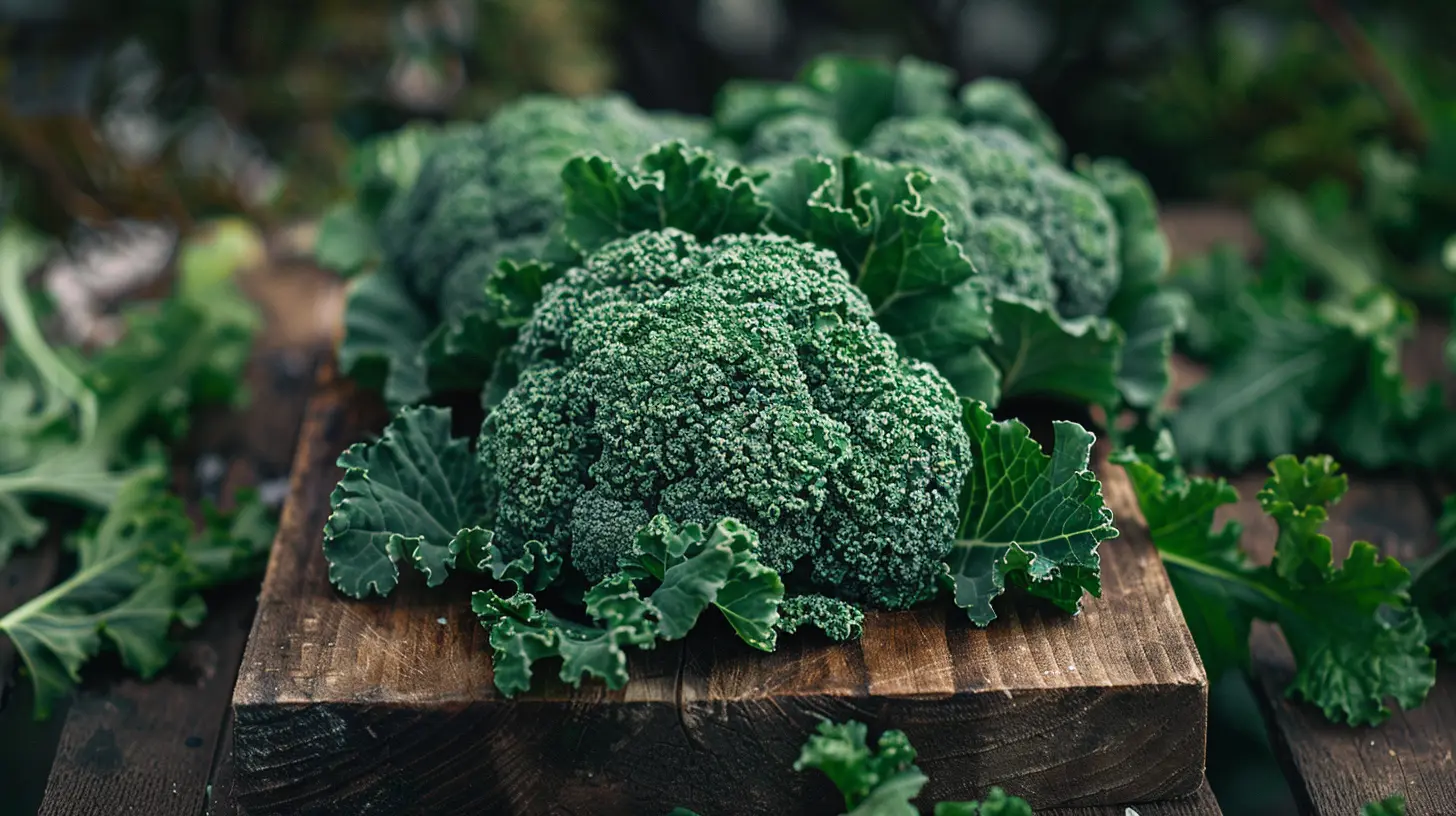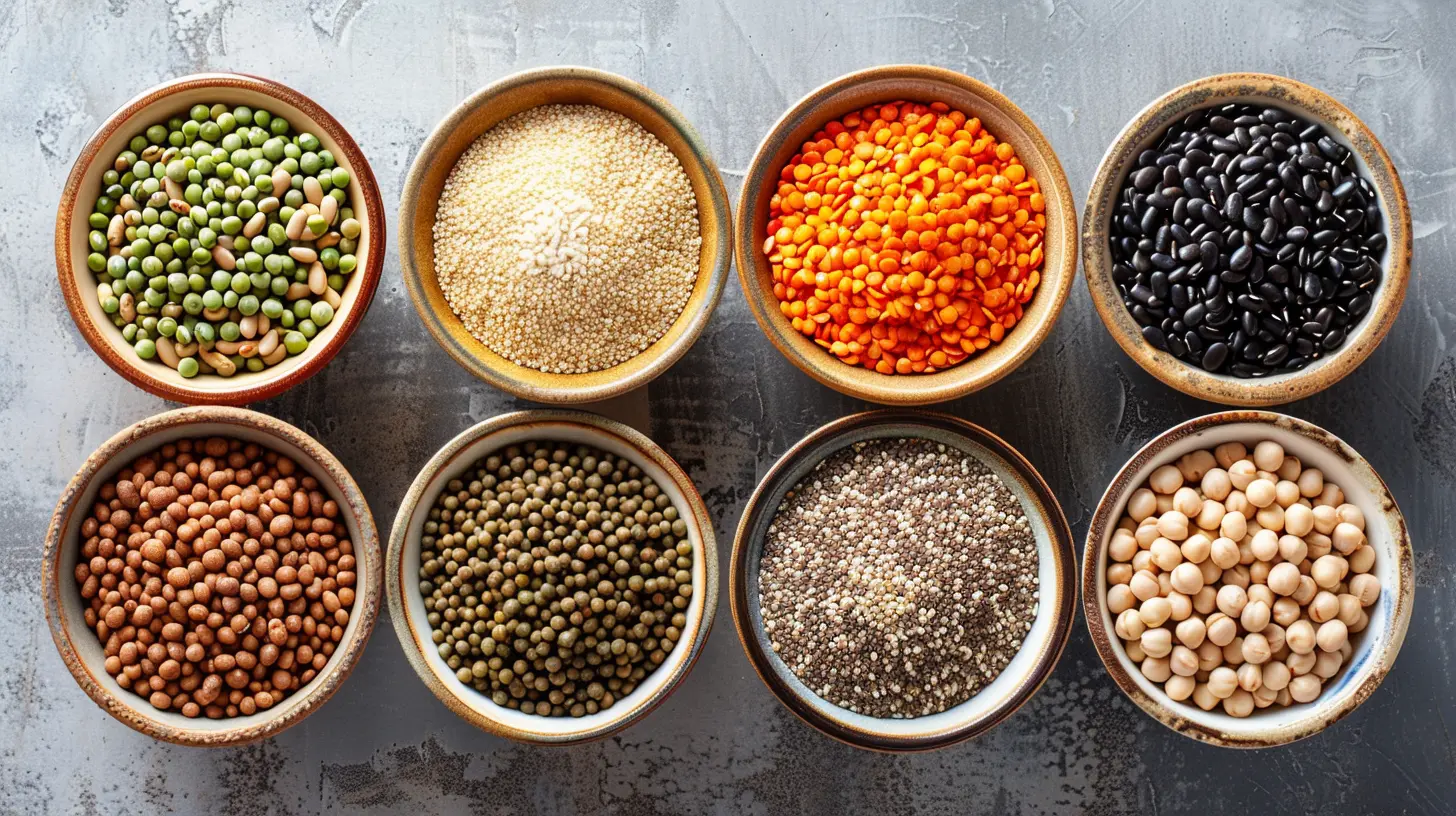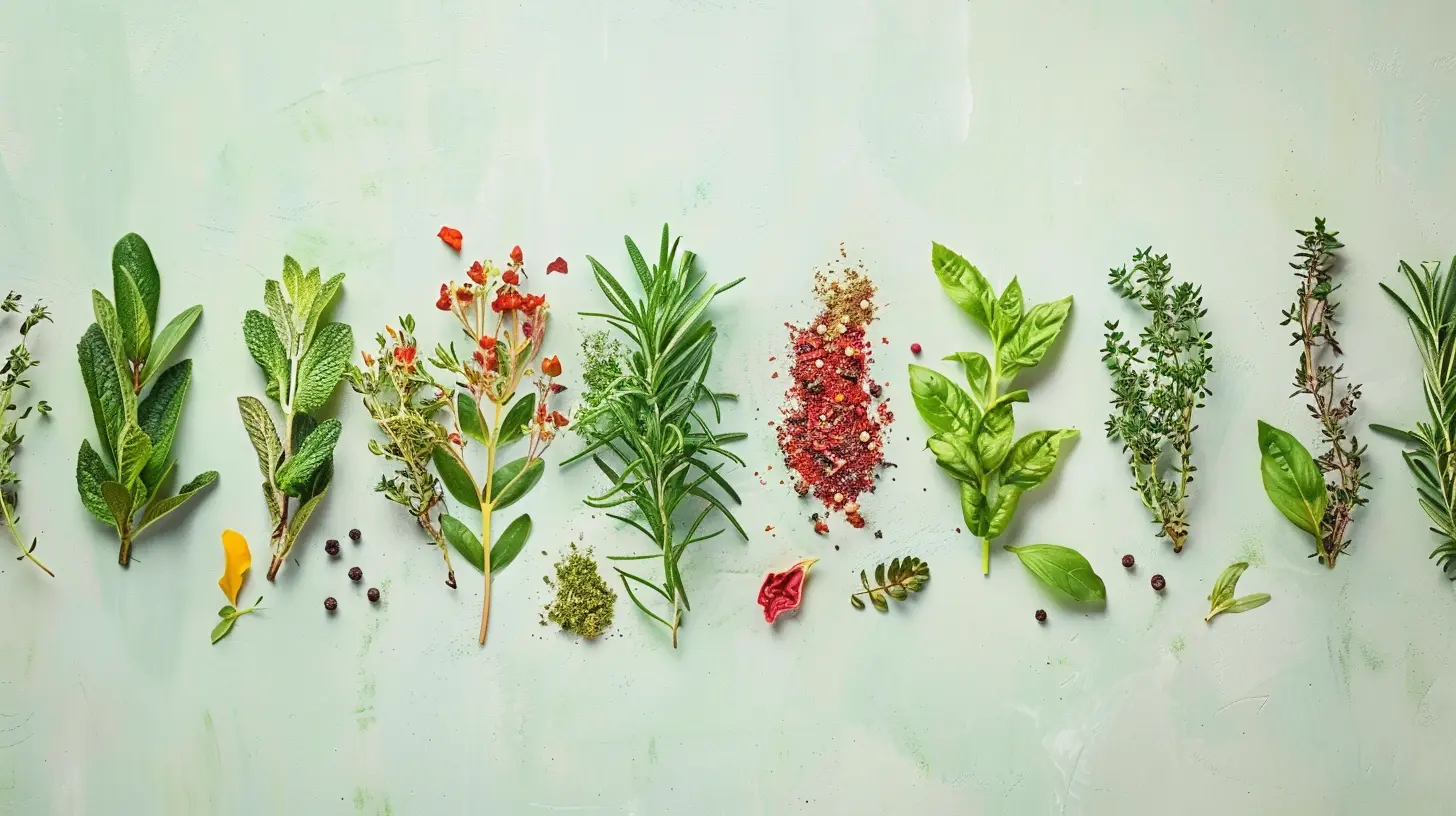The Science of Plant-Based Diets: What You Need to Know
21 September 2025
Switching to a plant-based diet isn’t just a passing wellness trend—it’s backed by solid science. From boosting heart health to improving gut function, the benefits are piling up. But what exactly happens inside your body when you ditch animal products for a more plant-forward approach? Let’s break it down and get into the nitty-gritty of plant-based nutrition. 
What Is a Plant-Based Diet?
A plant-based diet focuses primarily on foods derived from plants. This includes fruits, vegetables, nuts, seeds, whole grains, and legumes. While it’s often confused with veganism, plant-based eating doesn’t necessarily mean cutting out all animal products. Instead, it’s about making plants the star of the show.Think of it like this: If your plate were a concert, plants would be the headlining act, and any animal-based foods would be the occasional backup singer. 
The Science Behind a Plant-Based Diet
1. Loaded with Nutrients Your Body Craves
Plants are naturally packed with vitamins, minerals, antioxidants, and fiber. These nutrients are vital for maintaining energy levels, supporting the immune system, and promoting overall wellness.- Fiber for Gut Health – A plant-based diet is naturally high in fiber, which feeds beneficial gut bacteria and aids digestion.
- Phytonutrients for Protection – Found only in plants, these compounds help fight inflammation and oxidative stress.
Eating a variety of colorful fruits and veggies ensures you get a broad spectrum of nutrients that work in harmony to keep you thriving.
2. Heart Health Benefits
One of the most compelling reasons to go plant-based is its impact on heart health. Multiple studies show that plant-heavy diets can reduce the risk of cardiovascular disease.- Lower Cholesterol – Animal products are the primary source of dietary cholesterol. Removing or reducing them can lead to lower LDL (bad cholesterol) levels.
- Better Blood Pressure – Plant-based eaters often have lower blood pressure, thanks to a diet rich in potassium and magnesium.
- Less Risk of Heart Disease – A diet centered on whole, plant-based foods has been linked to a significant reduction in heart disease risk.
Your heart will thank you with every fiber-rich meal you eat!
3. Supports Weight Management
Carrying a few extra pounds? A plant-based diet might be the effortless weight-loss hack you’ve been looking for.Plants are naturally lower in calories but higher in volume, meaning you can eat more while consuming fewer calories. Plus, fiber keeps you full longer, reducing mindless snacking. Research shows that those who adopt a plant-based lifestyle tend to have a lower body mass index (BMI) than meat-eaters.
No more crash dieting needed—just good, wholesome food that keeps you satisfied!
4. Reduces the Risk of Chronic Diseases
Ditching processed meats and embracing more plant foods can help ward off chronic illnesses like diabetes and cancer.- Type 2 Diabetes – Fiber-rich foods slow down sugar absorption, helping to regulate blood sugar levels. Studies indicate that plant-based eaters are at a lower risk of developing type 2 diabetes.
- Cancer Prevention – Some plant compounds, like flavonoids and carotenoids, have been shown to have cancer-fighting properties. Reducing red and processed meats also lowers cancer risk, particularly colorectal cancer.
The bottom line? Plants have powerful disease-fighting agents working to keep you healthy from the inside out.
5. Boosts Your Energy Levels
Ever notice a sluggish feeling after eating a heavy, meat-based meal? That’s because animal products take longer to digest, often leaving you feeling weighed down.A diet rich in whole plant foods provides a steady release of energy throughout the day. No post-lunch crashes, no afternoon sluggishness—just pure, clean energy from real food.
6. Improves Skin Health
Glowing skin isn’t just about what you put on your face; it’s also about what you feed your body. A plant-rich diet provides essential vitamins like A, C, and E, which help fight acne, reduce wrinkles, and keep your skin hydrated.Antioxidants found in fresh produce work as an internal defense system, protecting your skin from oxidative stress and premature aging. So, if you want that radiant glow, your diet matters just as much as your skincare routine! 
Common Myths About Plant-Based Eating
Despite the many benefits, plant-based diets still come with some myths that need debunking.Myth #1: You Won’t Get Enough Protein
This is the most common concern, but here’s the truth: plants have protein too! Lentils, beans, tofu, quinoa, nuts, and seeds are all excellent protein sources. Even leafy greens contain small amounts of protein.Myth #2: You’ll Lack Essential Nutrients
A well-planned plant-based diet provides all the nutrients you need. Key nutrients to pay attention to include:- Vitamin B12 – Found in fortified foods or supplements
- Iron – Plenty in lentils, spinach, and pumpkin seeds
- Omega-3s – Can be sourced from flaxseeds, chia seeds, and walnuts
With a little planning, you can easily meet all your nutritional needs without animal products.
Myth #3: It’s Too Restrictive
Going plant-based doesn’t mean living off plain salads and tofu. There are endless delicious plant-based recipes, from hearty veggie burgers to creamy dairy-free pasta. Once you explore new flavors and ingredients, you’ll realize how satisfying and diverse plant-based eating can be.
Tips for Transitioning to a Plant-Based Diet
If you're thinking about going plant-based but don’t know where to start, here are some practical tips:1. Start Slow
You don’t have to go all-in overnight. Try implementing one or two plant-based meals per day and gradually increase from there.2. Stock Your Kitchen with Staples
Having a well-stocked pantry makes plant-based eating a breeze. Keep items like lentils, chickpeas, quinoa, nuts, and fresh produce on hand.3. Experiment with New Recipes
Get creative in the kitchen! Explore plant-based versions of your favorite dishes, like veggie tacos, lentil soup, or cashew-based cheese sauces.4. Listen to Your Body
Every body is different. Pay attention to how you feel and experiment with different plant-based foods to find what works best for you.The Bottom Line
A plant-based diet isn’t just good for you—it’s good for the planet too. Science continually backs up its benefits, from heart health to longevity and even skin glow. Whether you go fully plant-based or just incorporate more plant foods into your routine, your body (and the environment) will thank you.So, why not give it a try? After all, the science is clear: plants are a powerhouse of nutrition, and your health stands to gain big time.
all images in this post were generated using AI tools
Category:
NutritionAuthor:

Jackson Mahoney
Discussion
rate this article
1 comments
Sasha McQuade
Going plant-based? Just remember: if you find yourself talking to your kale like it’s a long-lost friend, you might be too deep into the veggie life. But hey, at least your fridge is now a salad bar!
October 5, 2025 at 3:49 AM

Jackson Mahoney
Haha, great point! It’s all about balance—enjoying veggies while keeping a sense of humor about our culinary adventures! 🥗


